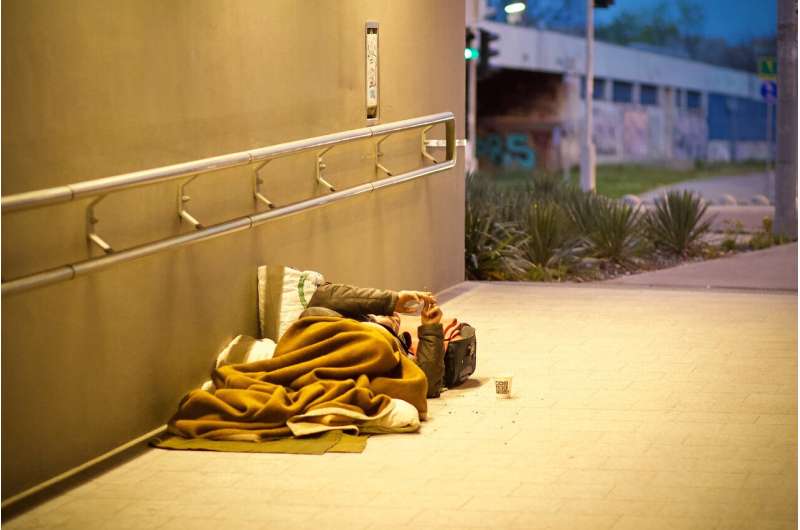
A new paper published by Unity Health Toronto researchers found most adults experiencing homelessness have faced an incredible burden of childhood trauma.
The paper, published in The Lancet Public Health, found nine in 10 homeless adults have been exposed to at least one adverse childhood experience and over half have been exposed to four or more adverse childhood experiences.Previous research in the general population has shown that those exposed to four or more childhood traumas were 17 times more likely to have attempted suicide than those who had not experienced trauma in childhood.
Michael Liu, lead author of the study, is a research coordinator at St. Michael’s MAP Centre for Urban Health Solutions, a medical student at Harvard University and a Rhodes Scholar. We spoke with Michael, a Toronto native, about the systematic review and meta-analysis and why he says services must be trauma-informed and there must be a greater emphasis on early-intervention.
The paper sought to answer the question: how often have adults experiencing homelessness had an adverse childhood experience? Why is this important to investigate?
There’s lots of literature on adverse childhood experiences in the general public, but I think this is a really under-appreciated aspect of homelessness. Adverse childhood experiences encompass potentially traumatic events occurring before the age of 18 years, such as abuse, neglect, and household dysfunction.
In the late 1990s, studies showed us that early trauma affects health throughout one’s entire life course. The accumulation of toxic stress affects just about everything—from our mental health to chronic disease. We know that toxic stress can lead to disrupted brain development, with long-term consequences for learning, behavior, and broad social outcomes. So we wanted to understand how big of a problem is early trauma in the homeless population, and if it is, what can we do about it? What do policymakers need to know?
Were the findings surprising to you?
We thought that adverse childhood experiences in this population would be an issue, but it’s even more prevalent than we expected. For it to be that high is really shocking, and is just further evidence of how strongly adverse childhood experiences are tied to homelessness and poor health.
While adverse childhood experiences are major risk factors for homelessness, they are not deterministic on their own. Other factors such as poverty, poor health, and systemic racism are also strong risk factors. The data challenges the pervasive narrative that homelessness is a culmination of individual choices. This is a population that is already suffering so much in the present, and what the analysis did was confirm that many have suffered a great deal in the past, too.
Where do we go from here?
We need to redouble our efforts to support this population. We know that this population has experienced an incredible burden of trauma, so this should change how we serve and support this population. When 90 percent of your population have been exposed to an adverse childhood experience and over half have been severely affected, that should alter how we think about the problem.
First, services must be trauma-informed. Staff who work in the system should be fully trained in providing trauma-informed care. For example, understanding how adverse childhood experiences affect health, reducing practices that might inadvertently re-traumatize someone, prioritizing physical and emotional safety, and fostering collaborative and trusting relationships.
Second, we need to offer people the basic right to housing without any preconditions, such as sobriety or committing to seeing a psychiatrist. Conditional housing is not trauma-informed.
Third, there should be greater emphasis on early intervention. Given that adverse childhood experiences are common risk factors for homelessness and poor health, policies and interventions to prevent adverse childhood experiences from occurring early in the life course should be implemented. We need to address homelessness at the root.
Is there anything else you’d like to add?
Source: Read Full Article